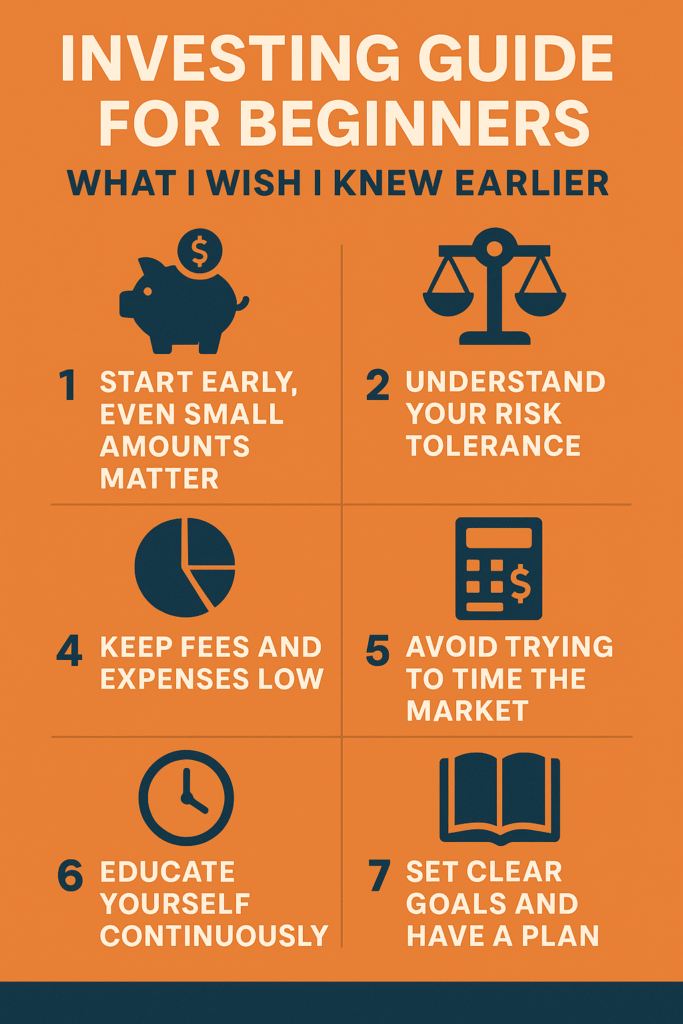Starting your investing journey can feel overwhelming. When I first began, I made mistakes and missed out on some valuable lessons. If you’re new to investing, here’s what I wish I knew earlier to help you build confidence and grow your money wisely.

1. Start Early — Even Small Amounts Matter
One of the most powerful forces in investing is compound interest — the idea that your earnings generate more earnings over time. The earlier you start, the more your money has time to grow. Even if you can only invest $50 or $100 a month, those small consistent contributions add up and make a big difference in the long run.
2. Understand Your Risk Tolerance
Investing always involves some risk, but not all risks are the same. Understanding your comfort level with risk is essential. Some investments like stocks can be volatile but offer high growth potential, while bonds tend to be more stable but with lower returns. Choose investments that align with your goals and how much fluctuation you can handle without panic selling.
3. Diversify Your Portfolio
Don’t put all your eggs in one basket. Diversification means spreading your money across different types of investments — such as stocks, bonds, ETFs, or mutual funds — to reduce risk. This way, if one investment struggles, others may perform better and help balance your overall returns.
4. Keep Fees and Expenses Low
Fees might seem small, but they add up over time and eat into your investment returns. Common fees include expense ratios for funds, management fees, and trading commissions. Opt for low-cost index funds or ETFs to minimize these costs and keep more of your money working for you.
5. Avoid Trying to Time the Market
Trying to buy low and sell high sounds ideal but is very hard to do consistently. Market timing can lead to missed opportunities and emotional decisions. Instead, focus on regular investing, like monthly contributions (called dollar-cost averaging), which helps you buy more shares when prices are low and fewer when prices are high.
6. Educate Yourself Continuously
Investing is a lifelong learning process. The more you understand about how markets work and different investment options, the better decisions you’ll make. Use trustworthy books, podcasts, and websites to build your knowledge and stay updated.
7. Set Clear Goals and Have a Plan
Know why you’re investing. Whether it’s for retirement, buying a home, or education, having clear goals helps you choose the right investments and stay motivated. Create a simple plan, revisit it regularly, and adjust as your situation changes.
Final Thoughts
Investing may seem complicated at first, but by starting early, managing risks, diversifying, keeping costs low, and educating yourself, you can build a solid financial future. Remember, mistakes happen — the key is to learn from them and keep moving forward with confidence.
Ready to take your first step? Open an investment account today or set up a small monthly contribution. Your future self will thank you!